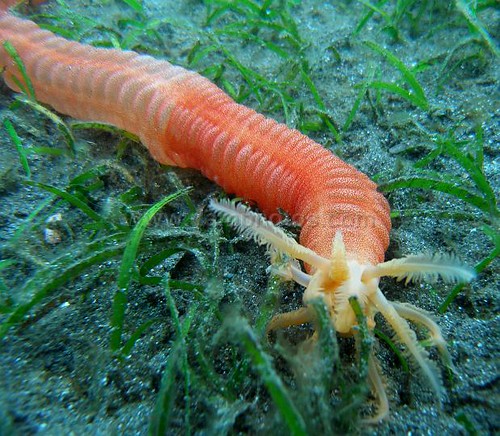 |
| Image by Mark Atwell |
A few words today about SYNAPTID sea cucumbers! (i.e, Family Synaptidae). These are a family of unusual sea cucumbers which are observed in shallow/SCUBA depth waters in the tropics! There are over 120 species of synaptids which occur primarily in the Indo-Pacific.
Synaptid sea cucumbers move pretty actively via peristalsis (i.e., body pulsates in a manner similar to that of worms. They seem to have lost any external manifestations of tube feet..
 |
| Image by Jay Dryden |
Synaptids have a well-developed array of feather-like feeding tentacles they use to move organic food into their mouths. Here's a video that shows one alive and kicking!
As the video shows, synaptids move along the bottom in a snake-like-fashion using their tentacles to move food into their mouth as they move as this species (
Synapta maculata) from Lembeh Strait in Indonesia is doing..
 |
| Image by Bernard DuPont |
This shows how long these get.. Some reach 6 FEET long...
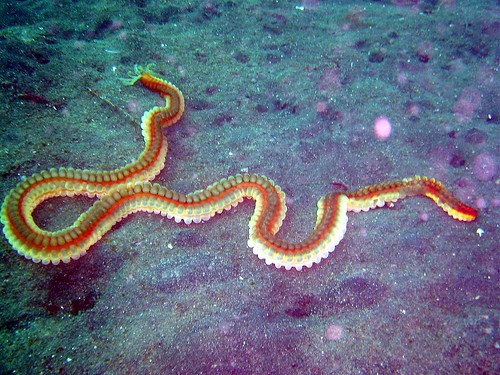 |
| Image by shamsulazar |
Some are decoratively patterned!
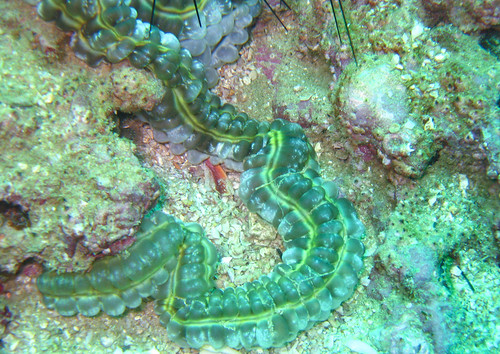 |
| Image by ania115 |
But while some species are huge and massive, others are tiny and form HUGE aggregations...
In
Synaptula spp., you'll often see hundreds of them on a single sponge! What I like to think of as a veritable city of sea cucumbers!
See all those wormy white things on the sponge? THOSE ARE SEA CUCUMBERS! (the genus
Synaptula sp.).
 |
| image by Enice Khoo (mermate) |
Another dense sponge colony overrun by
Synaptula!
 |
| image by Bernard DuPont |
Here's a less populous one..
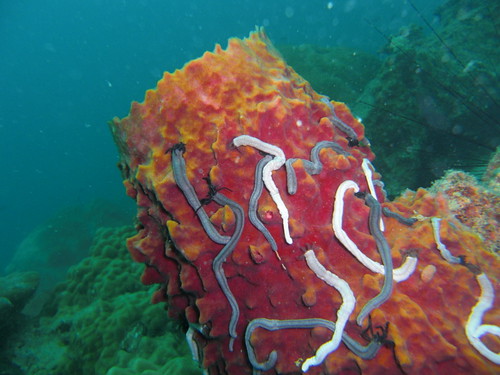 |
| image by Tom Puchner |
More!
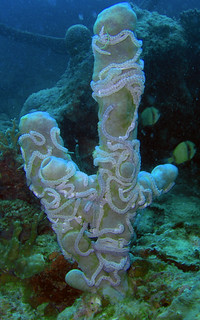 |
| image by Alfonsator |
some of them crawl around on purple sponges!
 |
| Image by Wild Singapore |
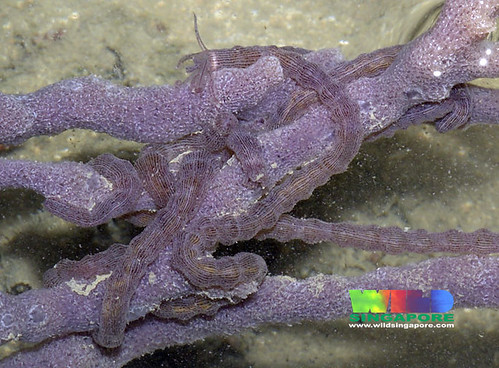 |
| image by Wild Singapore |
This is not the same sponge colony but a close up of a different one.. it gives you an idea of what's they look like (close up).
 |
| image by Rob Jeff |
But what are they doing? Presumably this posture of them reaching upright into the water is feeding,i.e., taking advantage of the water currents. Sea cucumbers living on a sponge is actually a pretty convenient place to live.. as sponge filter water, they likely accumulate all sorts of potential food particles that
Synaptula can take advantage of...
Amazingly, this is only the TIP of the iceberg where these animals are concerned..but that will have to wait for a future post!












No comments:
Post a Comment